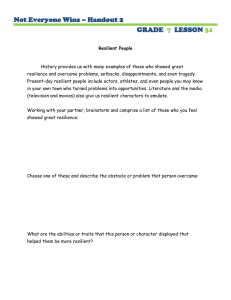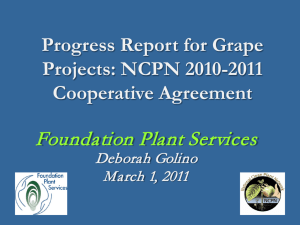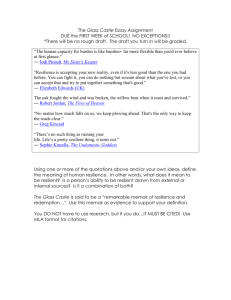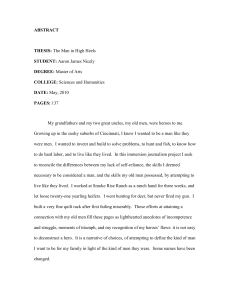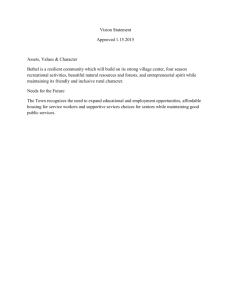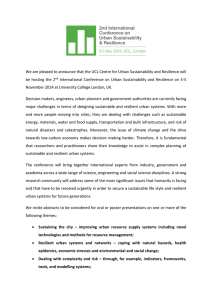Resilient Ranch Families Find Ways to Cope Randy R. Weigel
advertisement
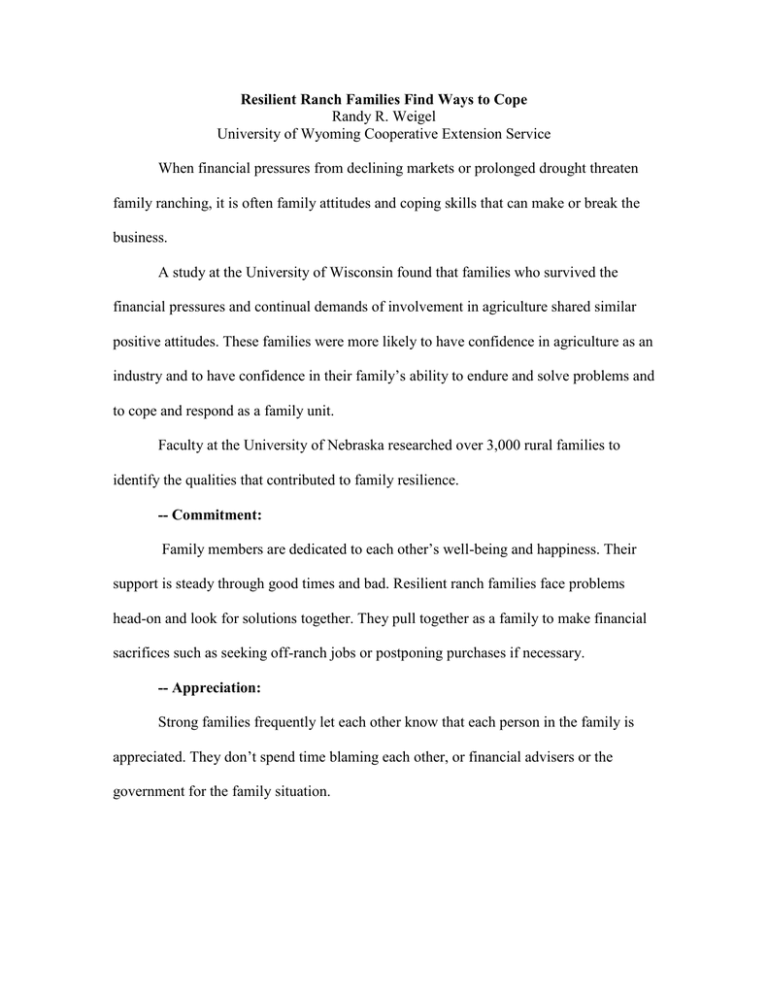
Resilient Ranch Families Find Ways to Cope Randy R. Weigel University of Wyoming Cooperative Extension Service When financial pressures from declining markets or prolonged drought threaten family ranching, it is often family attitudes and coping skills that can make or break the business. A study at the University of Wisconsin found that families who survived the financial pressures and continual demands of involvement in agriculture shared similar positive attitudes. These families were more likely to have confidence in agriculture as an industry and to have confidence in their family’s ability to endure and solve problems and to cope and respond as a family unit. Faculty at the University of Nebraska researched over 3,000 rural families to identify the qualities that contributed to family resilience. -- Commitment: Family members are dedicated to each other’s well-being and happiness. Their support is steady through good times and bad. Resilient ranch families face problems head-on and look for solutions together. They pull together as a family to make financial sacrifices such as seeking off-ranch jobs or postponing purchases if necessary. -- Appreciation: Strong families frequently let each other know that each person in the family is appreciated. They don’t spend time blaming each other, or financial advisers or the government for the family situation. -- Communication: Resilient families spend a lot of time in conversation and exchange information and ideas. They discuss trivial topics as well as deeper issues. To successfully deal with financial pressures, it takes family cooperation and skills in problem solving. -- Time together: Quality and quantity time go hand in hand in developing strong relationships. Resilient families find a balance between togetherness and individual time. They do not isolate themselves from their community but rather use their community for support. -- Spiritual wellness: Resilient families have a sense of a greater good or power in life and that belief gives them strength and purpose. -- Acceptance: When resilient families suffer serious crisis and stress, they may cry, get angry, and become depressed, but they are not broken. They adopt the attitude, “If we can survive this, we can survive anything.” They are able to see some good or opportunity for growth in crisis and accept the fact that hardship may sometimes be a way of life on the family ranch. Ranching as a way of life offers many challenges for ranch families—hard work, financial risks, long hours and continual demands. How individuals within a ranch family and a family as a unit approach these challenges determines the degree to which the family survives and thrives. Adapted from: Families First – Strong Families in Good and Bad Times, University of Nebraska Cooperative Extension.
